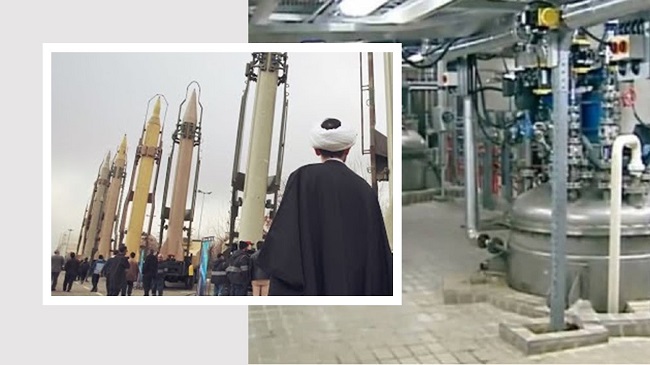
The National Council of Resistance of Iran (NCRI) reported on September 12 that an agreement between the Iranian regime and the United Nations atomic watchdog to solve ‘the most urgent issue’ between them, just as Iran’s nuclear extortion increases.
From the latest report on the regime’s nuclear activities from the International Atomic Energy Agency (IAEA), it was clear that they are starting to lose patience dealing with the regime. IAEA’s Director General, Rafael Grossi has consistently worked to save the 2015 Iran nuclear deal, also known as the Joint Comprehensive Plan of Action (JCPOA), by making temporary agreements with the regime to prevent agency inspectors from being removed from the country. Despite expressing concerns over the regime’s current nuclear activities, he has again struck another deal with the mullahs.
The NCRI said, “Tehran’s obstructionism with regard to these sites is troubling enough, but its significance has been greatly amplified by the past two years of comprehensive non-compliance with restrictions on the regime’s out-in-the-open nuclear activities.”
Despite being limited under the JCPOA as to how much enriched uranium they can produce, regime officials have often openly boasted their achievements in their uranium enrichment and ballistic missile development activities.
According to the IAEA report, the regime’s stockpile of 20 percent enriched uranium has increased from 62.8kg to at least 84.3kg since the issue of the previous report.
The NCRI said, “Under a temporary arrangement with Grossi, the Iranian regime agreed to retain video surveillance footage and other data from nuclear sites, on the promise of allowing inspectors to see it after negotiations led to the re-implementation of the JCPOA.”
Despite the agreement, the deadline for the replacement of data storage came to an end on August 24. Once again, the IAEA director has given in to the regime’s false promises instead of forcing the regime to curb its nuclear activities.
The regime has enriching uranium at or above its pre-JCPOA level for the past two years, blatantly defying the terms of the nuclear deal and all the while, facing no major consequences from the international community.
The NCRI said, “The Iranian regime has started nuclear extortion and whenever it felt the international community might take decisive action, the regime gave some promises and later violated those promises and agreements. Yet, each time, the world community hesitated to hold the regime accountable.”
This isn’t the first time that the international community has been reluctant to hold Iran accountable for its wrongdoings. In the summer of 1988, then-Supreme Leader, Ruhollah Khomeini issued a fatwa, ordering the executions of 30,000 political prisoners, many of whom were affiliated with the People’s Mojahedin Organization of Iran (PMOI/MEK).
United Nations human rights experts sent an open letter to Iranian officials that noted that while UN officials condemned the 1988 massacre in a resolution that same year, they never followed up on the issue. As a result, there has been a ‘devastating impact’ on the situation of human rights in Iran ever since.
The NCRI said, “There is no clearer sign that Tehran anticipates the international community to continue turning a blind eye to the regime’s worst crimes. And this goes to show that those crimes will continue to recur until such time as world powers take quick, decisive action to hold Tehran accountable for each of its malign activities.”